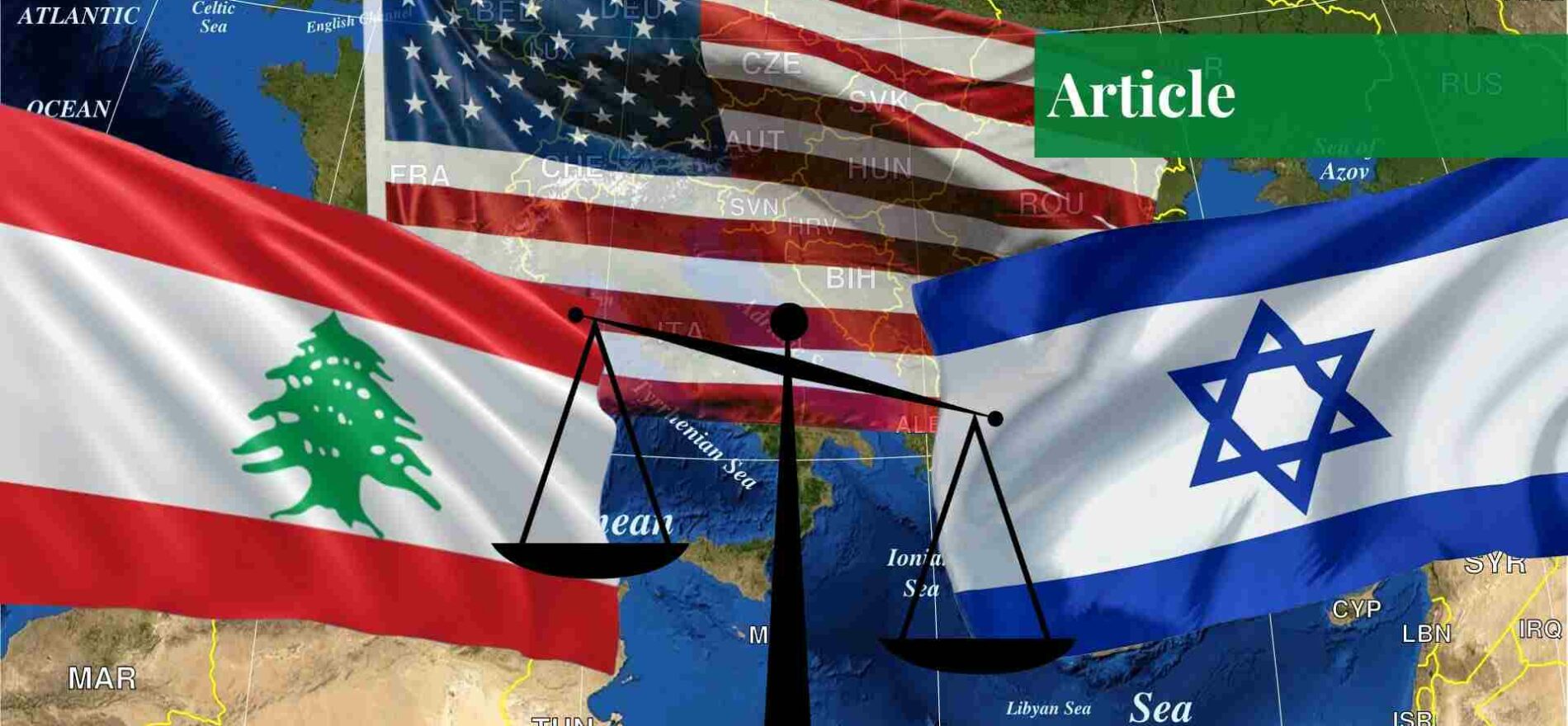Mahnoor Najeeb completed her Bachelor's in Public Policy from NUST. She has a keen interest in global politics and international conflicts.
Historic Maritime Deal
A historic maritime border deal was reached on 11th October, 2022 between longtime enemies in the Middle East, Lebanon and Israel. It is being called historic because the two nations were technically always at war and also because there remained no diplomatic relations prior to this agreement.
The maritime deal brokered by Amos Hochstein, the US Department of State’s energy envoy, has paved way for offshore energy exploration in the Mediterranean Sea. In accordance with the deal, a border has been drawn between the waters of Lebanon and Israel referred to as Line 23.
The deal has given Israel full rights over the Karish oil fields, while Lebanon retains full rights over the Qana field but with a caveat. As the Qana field stretches southward across Line 23, the deal granted Israel the right to get a share of royalties through a side deal with the Block 9 operator, the French company Total. In addition to this, the deal has clearly outlined the exclusive economic zones for each country.
Currently, the agreement has not been ratified by either party. The deal will officially come into effect once Israel and Lebanon send letters to Washington, which will issue a notice marking the start of this historic maritime agreement. It is expected to happen on October 27th when Lebanon and Israel will simultaneously – but separately – send their new boundary’s coordinates to the United Nations.
The role of the Iran-backed Hezbollah group is quite pivotal too. The Karish field has always remained under threat by the Hezbollah group. With regard to this deal, Hezbollah’s senior officials made it clear to support the Lebanese government but also threatened Israel in the case for not ensuring the full rights of Lebanon. However, to everyone’s surprise, the Iran-backed militant group agreed to the terms and conditions and declared negotiations to be “over.”
Consequences of the Deal
For Israel
According to experts, the deal has benefited Israel more than any other nation. As a result of this deal, Israel will be able to operationalize its third offshore natural gas field. It will not only ensure energy security for Israel but also enable it to boost its revenue through gas exports. Moreover, as the Qana field extends into the waters of Israel, the country shall also get a share of royalties from the French company, Total.
The fruitful prospects of the deal for Israel are quite evident from the words of its Prime Minister, Yasir Lapid. In a recent statement, he said that “This is a historic achievement that will strengthen Israel’s security, inject billions into Israel’s economy, and ensure the stability of our northern border.”
Moreover, Israel has the privilege to be fully supported by the US and its foreign policy. As part of the deal, a side letter has been signed between America and Israel where America is bound to put diplomatic pressure in case Hezbollah or any other party violates the agreement.
For Lebanon
Lebanon has put itself in a very vulnerable situation. Some observers are dissatisfied with the deal. According to Marc Ayoub, associate fellow at AUB’s Issam Fares Institute in Beirut, the deal has been quite unfair. He further adds “What we have seen is that it gives more advantages to Israel rather than Lebanon.”
Initially, Beirut had demanded Line 29 which was further south of the border. An agreement on Line 23 means a loss of approximately 1800 square kilometers, according to Ayoub. However, the deal can be a change-maker as it will boost gas production and exports amidst the energy as well as the economic crisis in Lebanon.
The deal also has the potential to unlock foreign investments, but all of this is subject to the infrastructure in the Qana field. The Qana field has yet to be explored to make extraction economically viable. Also, it is expected that the agreement will benefit the people of Lebanon the most, but rampant corruption is a bone in the throat of an economy enriched with natural resources.
According to Diana Kaissy, advisory board member at the Lebanese Oil and Gas Initiative (LOGI), “Lebanon does not have mechanisms, including a sovereign wealth fund and a fiscal act, to adequately govern the oil and gas sector.”
For Europe
The maritime border deal between Israel and Lebanon can potentially help European countries ameliorate the energy crisis at home that was triggered by Moscow’s invasion of Ukraine. The energy crisis in Europe is further surfacing with the recent decision by the OPEC+ countries to cut production. So, the deal will not only bring energy security in Israel and Lebanon but also in Europe.
Conclusion
It is quite noteworthy to understand the timing of this deal where each party is pushed into this agreement because of certain domestic factors. Upcoming elections in Israel and political and economic turmoil in Lebanon have compelled both nations to sign a mutually beneficial deal.
However, it must not be forgotten that both nations are still contentious over land borders. So, the success of the deal is highly dependent on political, economic, and social factors in both nations that can either exacerbate the issue or help soothe the tensions.
If you want to submit your articles/research papers/book reviews, please check the Submissions page.
The views and opinions expressed in this article/paper are the author’s own and do not necessarily reflect the editorial position of Paradigm Shift.



















